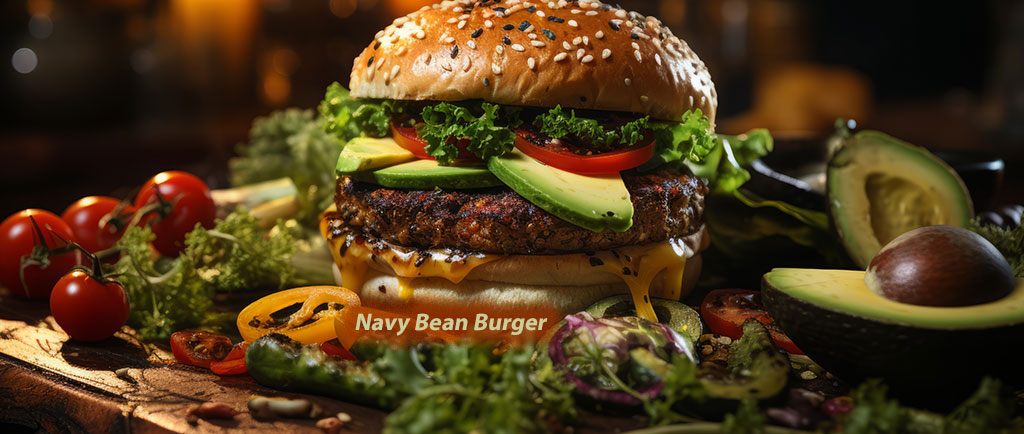
When Cell Towers Fail: St. Louis Residents Race to Build an Emergency Safety Net
Help Bring Free Emergency Walkie-Talkie-Like Service to Black St. Louis, Donations and Tower Space Needed In the heart of St. Louis, a group of dedicated

Thinking about going vegetarian or vegan? You’re not alone. Every year, more people are making the move toward plant-based living to improve their health, support the planet, and take greater control over what goes into their bodies. If you’re ready to jump in but don’t know where to start, we’ve got you covered — starting with a delicious and powerful secret weapon: Navy beans.
One of the biggest challenges for new vegetarians and vegans is figuring out what to put on the plate where meat used to be. Here’s the key: Navy beans.
Navy beans are loaded with protein, fiber, and nutrients — making them the perfect substitute for meat in almost any dish. Whether you’re making tacos, soups, burgers, or casseroles, get creative by using seasoned Navy beans. They offer a hearty texture and soak up flavors beautifully.
Forget tofu, soy, or heavily processed meat substitutes — Navy beans are the clean, classic upgrade your meals need.
Search for vegetarian recipes online to spark inspiration. But here’s the catch:
Many mainstream recipes sneak in processed ingredients packed with high-fructose corn syrup, excessive sodium, or other unhealthy additives.
Solution: If a recipe suggests a store-bought sauce, broth, or brand with sketchy ingredients, simply swap it out for a healthier option. Always choose organic, low-sodium, and naturally sweetened alternatives when possible.
Also, make smart swaps in the recipe:
Replace kale with organic lettuce or baby spinach for a gentler, easier-to-digest green.
Wherever a recipe calls for tofu, soy, chickpeas, or peas, swap in Navy beans instead. They’re less processed, more natural, and better suited for a clean plant-based lifestyle.
Top 3 Vegetarian Recipe Websites to Check Out:
Minimalist Baker – simple, delicious plant-based recipes with easy-to-find ingredients.
Oh She Glows – vibrant vegetarian meals that focus on whole foods.
Forks Over Knives – recipes focused on health, longevity, and plant-based living.
Directions:
If you’re aiming for vegetarian (not fully vegan) and still consume dairy, be selective:
Avoid conventional cow’s milk, cheese, and butter, which are often loaded with antibiotics, hormones, and high sodium levels.
Always choose organic, low-sodium, and grass-fed versions when available.
Even better, explore organic plant-based milks like oat milk, almond milk, or hemp milk as alternatives.
Clean water is the foundation of a healthy body.
Invest in a ZeroWater filter. Unlike standard filters, ZeroWater removes fluoride, heavy metals, and a host of other toxins.
When you’re eating clean, you want your water clean too — for both drinking and cooking.
Vegetarians avoid meat, fish, and poultry but may still eat dairy and eggs.
Vegans avoid all animal products entirely — no meat, no dairy, no honey, no eggs.
We encourage a vegetarian lifestyle over veganism. Why?
A vegetarian approach gives you the flexibility to include nutrient-dense foods like organic dairy and eggs, which offer important vitamins like B12, D3, and high-quality protein. It’s easier to maintain nutritional balance without relying on heavy supplementation — and it’s more sustainable for many people long-term.
Final Thought:
Transitioning to a plant-forward life doesn’t have to be complicated or extreme. Start simple. Swap smart. Embrace the power of the humble Navy bean. And remember: small steps every day lead to big changes over time.

Help Bring Free Emergency Walkie-Talkie-Like Service to Black St. Louis, Donations and Tower Space Needed In the heart of St. Louis, a group of dedicated

Photo: © Fox. Angela Bassett and Peter Krause in 9-1-1, “Defend in Place” episode (2021). Our perceptions are constantly shaped by the media we consume—especially

In recent years, a powerful shift has been taking place across Black communities in America—more and more Black Americans are turning to vegetarianism as a